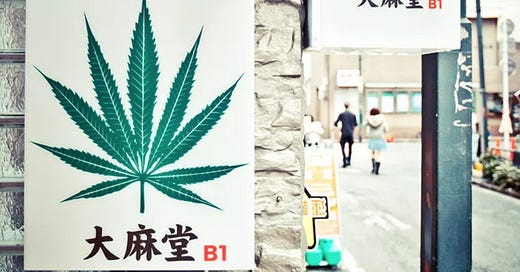Lifting of ban on medical cannabis in Japan sparks fears about CBD
Japan’s Ministry of Health this week indicated it will lift the country’s ban on cannabis-based medicines
While Japan’s Ministry of Health this week indicated it will lift the country’s ban on cannabis-based medicines, CBD stakeholders say they fear regulators may stop there and not allow sales of CBD food and cosmetics products.
In that scenario, big pharmaceutical firms could control a market limited to medical CBD only, according to Yosuke Koga, Director at Japanese hemp company Prossimo.
Responding this week to an emergency request, Japan’s Ministry of Health, Labor and Welfare said it was lifting the country’s ban on all cannabis-based medicines, clearing the way for manufacturing and sales by pharmaceutical makers under government licensing. The changes came after deliberations by an expert panel assigned to study cannabis issues.
Koga said the change could in part be the result of preparation for the introduction of the high-CBD drug Epidiolex to the Japanese market. Epidiolex was approved for clinical trials in Japan two years ago.
Go farther
Industrial hemp stakeholders urged the government to go farther and draw a line between high-THC marijuana and hemp. Koga said that while industrial hemp is being discussed at the ministry level, it’s difficult to say if there will be further changes that Japanese hemp supporters have long sought.
If Japanese officials go beyond medical CBD and relax rules to open up the CBD food and cosmetics markets by allowing products from hemp flowers, the opportunities for those sectors could be huge, according to Koga. “That change would open the gate wide for foreign CBD brands in the most aging society on the planet,” Koga said.
Japan’s regulations on cannabis are based on which parts of the plant can be processed as opposed to THC content. Under current rules, only products derived from the stem and seeds of hemp plants may be sold.
All cannabis-based medicines have been illegal in Japan, but some doctors have skirted the law to treat epilepsy and other patients while pushing for regulatory change. Noting shifting sentiment and laws internationally, the Ministry of Health earlier this year set up an expert panel to explore potential changes in the country’s strict cannabis rules.
Pushing for change
“The release of medical cannabis is good news for patients, and opens the road to research development and raw material production,” Harumi Kikuchi of the Hokkaido Industrial Hemp Association (HIHA), said in a statement issued in the wake of the announced changes. “But we are also looking forward to the discussion of the revision of the cannabis control law that allows expansion of the cultivation of industrial cannabis,” Kikuchi said in a statement.
The HIHA has pushed for changes that would refine definitions for low-THC industrial hemp under Article 1 of Japan’s Cannabis Control Act, but Kikuchi said the government missed the opportunity to do that in the most recent review.
Hemp varieties should be classified according to THC content and end use, with separate regulations developed for each category, HIHA has said. Industrial hemp should be defined as cannabis plants containing less than a 0.3% THC, and should be treated as a common agricultural product, the Association urged.
Those suggestions were among a number of recommendations HIHA put before the expert committee earlier this year.
Will opportunity be lost?
While the expert committee is continuing to meet, Kikuchi said if the matter is not sorted out, “the opportunity to promote our hemp industry will be lost.”
Critics also noted that as the government loosens controls on medical cannabis it has also tightened other cannabis laws that were already considered to be draconian. “Excessive regulation on medical cannabis and adult-use cannabis can encourage bias against industrial cannabis and may hinder the development of the hemp industry,” HIHA said in its statement.
That being said, Koga suggested the Health Ministry’s move on medical cannabis signals progress in efforts to change how Japanese officials think about cannabis. “The most significant aspect of this change is that it shows they start reconsidering the definition of marijuana,” he said.
Sourced from Hemp Today




